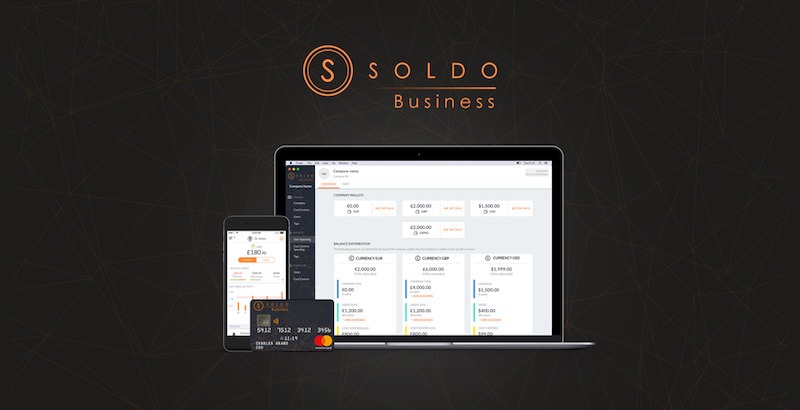Company payment cards are a popular method of managing business expenses, but they aren’t necessarily the most efficient. Read on to find out more.
Introduction to company payment cards
If you’re a small business owner, you’re bound to have a number of costs that build up over time. From larger payments like travel and electronics, to smaller transactions like cash withdrawals and everyday spending. The bill can quickly add up. These outgoings would be a nightmare if you managed them with cash or your personal debit card.
That’s where company payment cards come in; they’re an increasingly popular way for business owners to manage their company’s finances in a controlled way. But there’s lots to consider before you apply for a business credit card, and ways to optimise credit card usage. Here, we’ll go through the basics of company payment cards.
What is a company payment card?
A company payment card is a card that lets you pay for goods or services relevant to your business without involving cash or personal finances. They work in a similar way to personal cards but the main difference is that they are held by a company rather than an individual. You might also hear these cards referred to as ‘business credit cards’ or ‘business debit cards’. You apply for a business debit card through a bank or other provider, and they will set certain criteria for eligibility.
Company cards have a lot of advantages over other forms of business spending. For example, using cash means either asking staff to pay for expenses themselves and then reimbursing them later, or handing out advances. Both are inefficient, acting as a drag on productivity.
Using a personal debit card means that your own finances are tied into your business’, which produces much more risk than is necessary. In fact, business bank accounts can prohibit the use of personal cards for company spending, so you definitely want to avoid that.
A business debit card means that your personal finance is completely separate from your business’. These cards allow your company to build up its own credit profile, which will make it easier if you want to apply for loans or other credit further down the line.
Accounting is a lot easier, too, with a company payment card. You can use statements instead of filling in paperwork, and this data can be transferred onto specialist accounting software, such as QuickBooks Online or Xero.
Best business credit card provider
What constitutes ‘best’ depends on what you’ll need your card for and what type of card you want. You’ll want to consider whether a particular provider’s features and benefits fit into what your business needs. Eligibility requirements vary, and you’ll want to simplify the process by applying for company card packages for which your business already fulfils the criteria.
Each provider offers a different credit limit, interest-free period, and late payment fee, for example. Some will only offer you a company card if you already bank with them, and your options could be narrowed if you don’t have a good credit rating.
The most important thing to keep an eye on is interest charges, which includes your annual card fee. These can vary significantly, but most cards include a grace period in which you can pay back your debts without accruing interest.
There are lots of considerations such as these to keep in mind so that you know your choice of business debit card will benefit your business in the long run.
You can use an eligibility checker to see which cards are available to you, but you’ll want to make sure that any card you choose is right for your business.
Downsides to company payment cards
Although business debit cards are a popular choice, and can certainly be effective when used well, they do come with some pitfalls.
For example, if you have multiple employees incurring business expenses, you might want to issue multiple cards as this makes it easier to track who is spending what. This can be difficult, however, as some providers set limits on card numbers. Even if you don’t have a limit, you’ll have to think carefully about which individuals you’re issuing cards to.
What can end up happening is that you have a single payment card that gets shared across the business, which makes it difficult to get an updated view on who’s spent what and when. Shared corporate cards can lead to overspending and reduced accountability. It’s easy to hit transaction limits during critical spending periods, or to lose track of your grace period. And the potentially long wait for statements means cash flow is never really up to date. Having additional cards on the same account only leads to the same issue.
This can lead to dreaded monthly sessions of sifting through debit card transactions and trying to balance the books. This is time consuming and can negatively impact your business’ flow, which can be especially harmful for small businesses.
Access lower fees and save time spent on accounting by joining Soldo today.
Amongst the numerous choices in the world of company payment cards, there is another option. Soldo isn’t a business credit card, but it can be used in place of one. With Soldo’s prepaid cards, you can avoid the negatives that come with a business debit card. Soldo integrates prepaid Mastercard® payment cards with intuitive admin tools for real-time visibility and control over spending, as well as simple expense management.
You’ll be able to track your cash flow in real time, with every transaction linked to an individual account. So you’ll never have to investigate a mystery payment again. The spend-management process is streamlined from the moment an employee uses a card right through to reflecting that expense for compliance in accounting software.
You can sync your expenses and spending data with Xero or Quickbooks Online in just a few clicks.
Not only this, but you also set the limits on which employees are spending what, so you know ahead of time which employee has been assigned how much. It’s free to add funds, and money is available to spend instantly. Allocate funds to cards when your team needs it.
Streamline your business spending and have greater peace of mind with Soldo.












